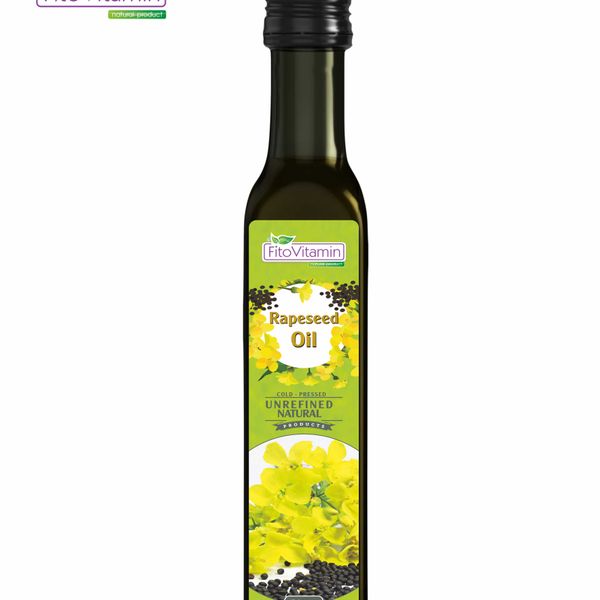상품

Rapeseed Oil
The main useful property (and advantage over the common and traditional sunflower) is the presence of omega-3 polyunsaturated fatty acids in rapeseed oil, which can reduce blood cholesterol and protect the heart from heart attack and stroke. This is the property in which rapeseed oil differs from sunflower oil, because the latter does not have these acids at all.
Rapeseed oil, the composition of which contains other fatty acids in the same amounts as the famous olive oil, is rich, in addition, with the following useful components:
Vitamin A, which improves vision and improves immunity;
Vitamin D, which protects children from rickets and adults from skin diseases;
Vitamin E, or tocopherols, are the main antioxidants that protect our body from the threat of cancer;
polyunsaturated acids (linoleic acid - Omega 6, linolenic acid - Omega 3)
monounsaturated acids (oleic acid - Omega 9).
For culinary experts, it is also important that rapeseed oil, whose chemical composition is so rich in vitamins, has a pleasant nutty aroma and taste resembling peanuts, which is why it is readily used in restaurants for adding to salads and fried dishes.
Rapeseed oil moisturizes, softens, nourishes and regenerates the skin, which is why it is often used in dermatology and cosmetology.
The usefulness of rapeseed oil also lies in the fact that it retains its original color and transparency for a long time, which facilitates its storage.
Rapeseed oil, the composition of which contains other fatty acids in the same amounts as the famous olive oil, is rich, in addition, with the following useful components:
Vitamin A, which improves vision and improves immunity;
Vitamin D, which protects children from rickets and adults from skin diseases;
Vitamin E, or tocopherols, are the main antioxidants that protect our body from the threat of cancer;
polyunsaturated acids (linoleic acid - Omega 6, linolenic acid - Omega 3)
monounsaturated acids (oleic acid - Omega 9).
For culinary experts, it is also important that rapeseed oil, whose chemical composition is so rich in vitamins, has a pleasant nutty aroma and taste resembling peanuts, which is why it is readily used in restaurants for adding to salads and fried dishes.
Rapeseed oil moisturizes, softens, nourishes and regenerates the skin, which is why it is often used in dermatology and cosmetology.
The usefulness of rapeseed oil also lies in the fact that it retains its original color and transparency for a long time, which facilitates its storage.
As per customer's request, ISO Tank Container, Plastic Bottle, Glass Jar, Drums or Barrel
Rapeseed Oil
Organic, Non-GMO
Cold Pressed, Crude
Virgin
+ 1
추천 판매자
'쿠키 허용'을 클릭하면 통계 및 개인 선호도 산출을 위한 쿠키 제공에 동의하게 됩니다.
개인정보 보호정책에서 쿠키에 대한 자세한 내용을 확인할 수 있습니다.
